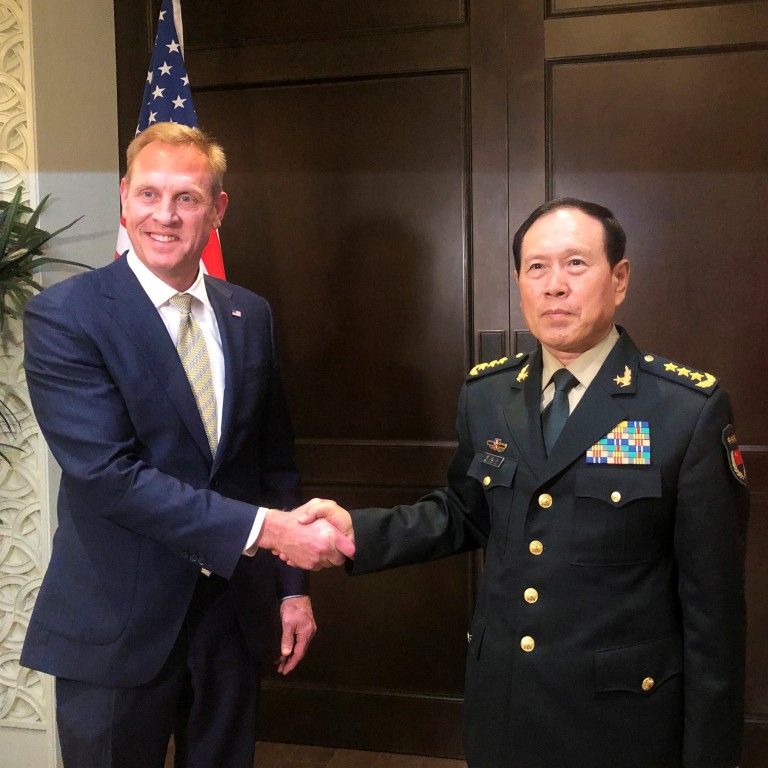
Shangri-La Dialogue shows China and US can get priorities right
- Talks in Singapore between the two sides as trade and tech wars rage were deemed to be ‘constructive’
- Such meetings are necessary to help manage risks and avoid escalation to open conflict
American arms sales to Taiwan and the alleged Chinese militarisation of the South China Sea have been evergreen issues for China and the United States at the annual Shangri-La Dialogue security forum in Singapore. This year, though, tensions between the sides were raised to new heights by tariff increases and the battle over the Chinese technology giant Huawei. But while defence ministers from the nations were only too aware of the contentious new matters and again raised the old ones, they made a conscious effort to calm hostilities. This is what the two governments and region need; a tacit understanding by their militaries that such talks and meetings are necessary to help manage risks and avoid escalation to open conflict.
US-China rivalry will roil Asia, even as both sides avoid military clash
China’s sending of its highest delegation in eight years, led by Defence Minister General Wei Fenghe, showed the level of concern over the actions of US President Donald Trump’s administration. In contrast, the US presence was somewhat diluted, with Patrick Shanahan still to be confirmed in his position as defence secretary. Still, both took a strong stand on protection of interests, although direct mention of one another was kept to a minimum. For Wei, that meant issuing a warning to “external forces” fostering the idea of independence for Taiwan. China, he said on Sunday, had a “legitimate right” to construct man-made islands in the South China Sea; Shanahan the previous day gave notice to Beijing that “behaviour that erodes other nations’ sovereignty and sows distrust of China’s intentions” should end.
Talks between Wei and Shanahan were determined by the sides to be “constructive” and a commitment to positive engagement was reiterated. In his speech to security officials, the acting US defence secretary said that while his country would remain a competitor of China’s, it would cooperate when interests aligned on issues including enforcing United Nations sanctions against North Korea and fighting transnational incidents such as piracy. But as he spoke, a Pentagon strategy report on the Indo-Pacific region was released that hit out at China for “eroding the values and principles of the rules-based order”.
The US has a challenging task convincing governments in Asia and the Pacific to side with it rather than China given Trump’s erratic actions. Less uncertain, though, is the desire by the nations’ militaries to keep politics from their dialogue and ensure relations remain cordial. Priorities were right in Singapore; although there was posturing, the trade and tech wars were set aside by China and the US so that they could work for a better communications channel to raise issues and improve understanding.

